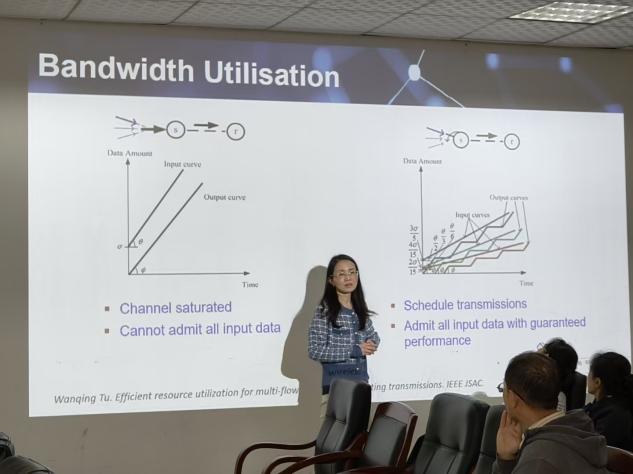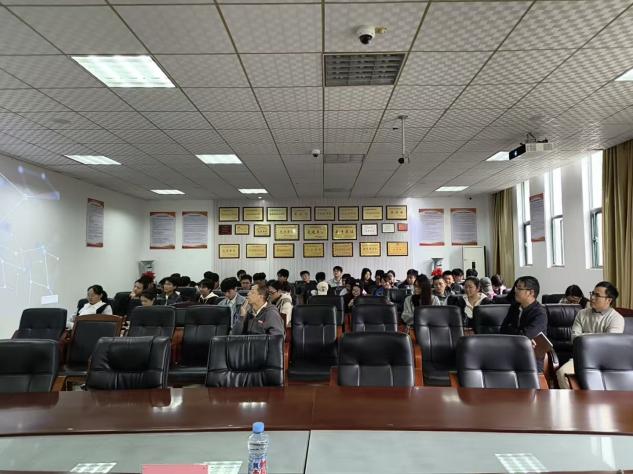School of Software and IoT Engineering Successfully Hosts Academic Lecture on “Resource Efficiency in IoT Networks
On the morning of October 20, the School of Software and IoT Engineering successfully hosted an academic lecture titled “Resource Efficiency in IoT Networks” in the second-floor conference room of HuiluBuilding, Mailu Campus. The event featured Associate Professor Wanqing TU from Durham University, UK, as the keynote speaker, with Vice Dean for International Affairs Mao Chengying in attendance.

During the lecture, Professor Tu focused on network data transmission scheduling, emphasizing that efficient communication hinges on maintaining a sustained data output rate higher than the inputrate—otherwise, the system risks stagnation. Addressing network congestion, she proposed a “packet scheduling” strategy, vividly comparing it to managing passenger flow through separate queues atsubway stations. This approach sacrifices minor short-term delays toachieve significant overall throughput improvements, offering novelinsights for alleviating data transmission pressure.
Regarding IoT interference detection, Professor Tu addressed the critical challenge of sensors being vulnerable to environmental and malicious interference. She introduced her team's novel detection method, which requires no additional hardware and achieves high-precision interference identification solely through network transmission.Compatible with multiple frequency bands and offering high accuracy,this method has been deployed across various IoT scenarios and isbeing tested for chip-level implementation. It offers greater flexibility and convenience compared to traditional beamforming techniques.
Additionally,Professor Tu shared cutting-edge advancements in Reconfigurable Intelligent Surfaces (RIS) technology. As an innovative relay mechanism, RIS effectively boosts throughput for long-distance transmission. His team plans to prioritize developing low-power passive RIS devices powered by clean energy, focusing on optimization to reduce data packet loss. Currently in the R&D phase, this technology lacks mature commercial products and relies heavily on independent project development.

Professor Tu's cutting-edge technology insights not only offer fresh perspectives for network communication research but also demonstratethe School's forward-looking approach and pragmatic style in pioneering technological development. The School remains committed to solving practical technical challenges, continuously advancing the deep integration of theoretical innovation and industrial applications. This approach cultivates specialized talent for the industry, injects momentum into its development, and lays a solid foundation for building high-level scientific research and exchange platforms.
Photo and text by: He Zhixue, Zhan Yuxin, MaoXiao


